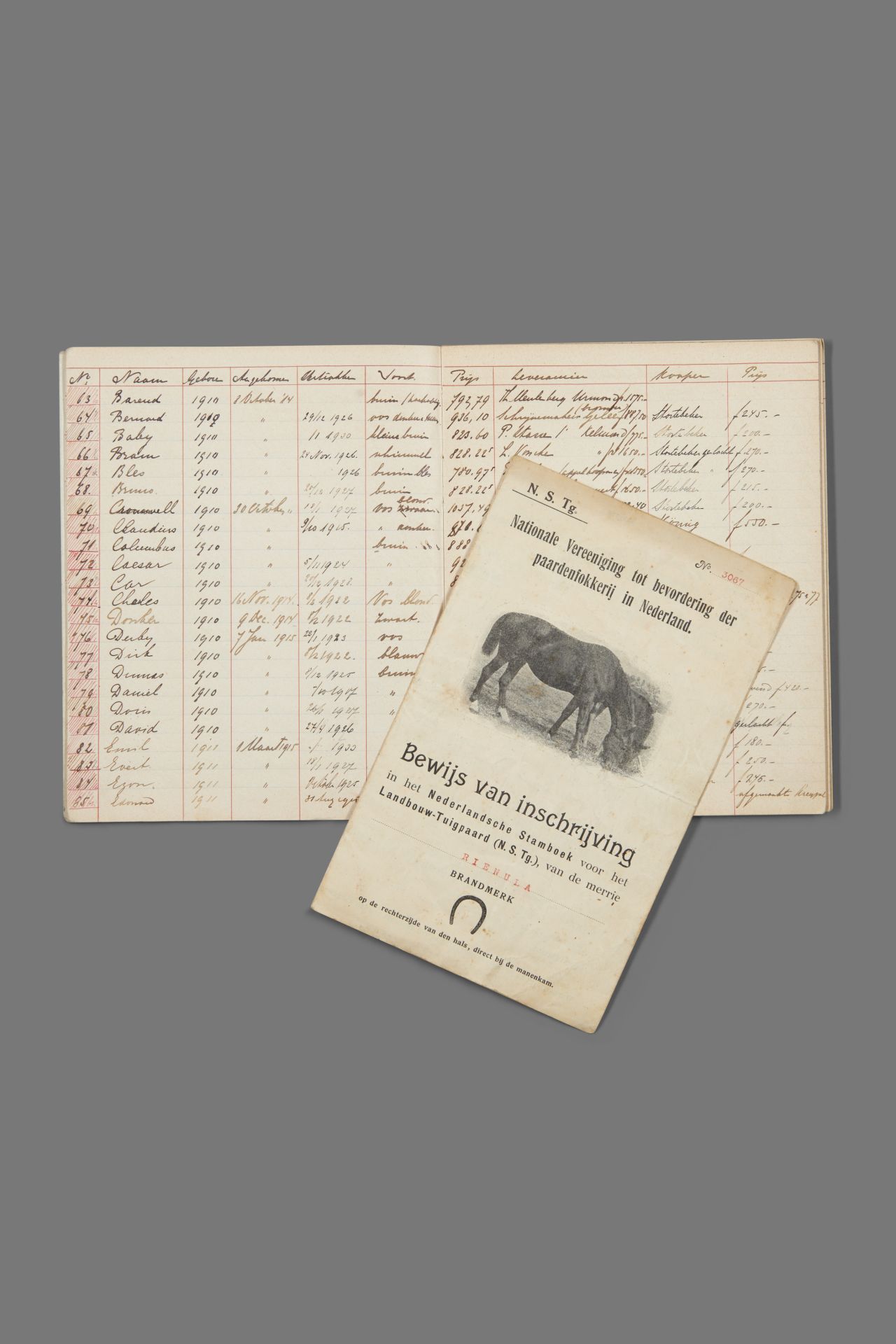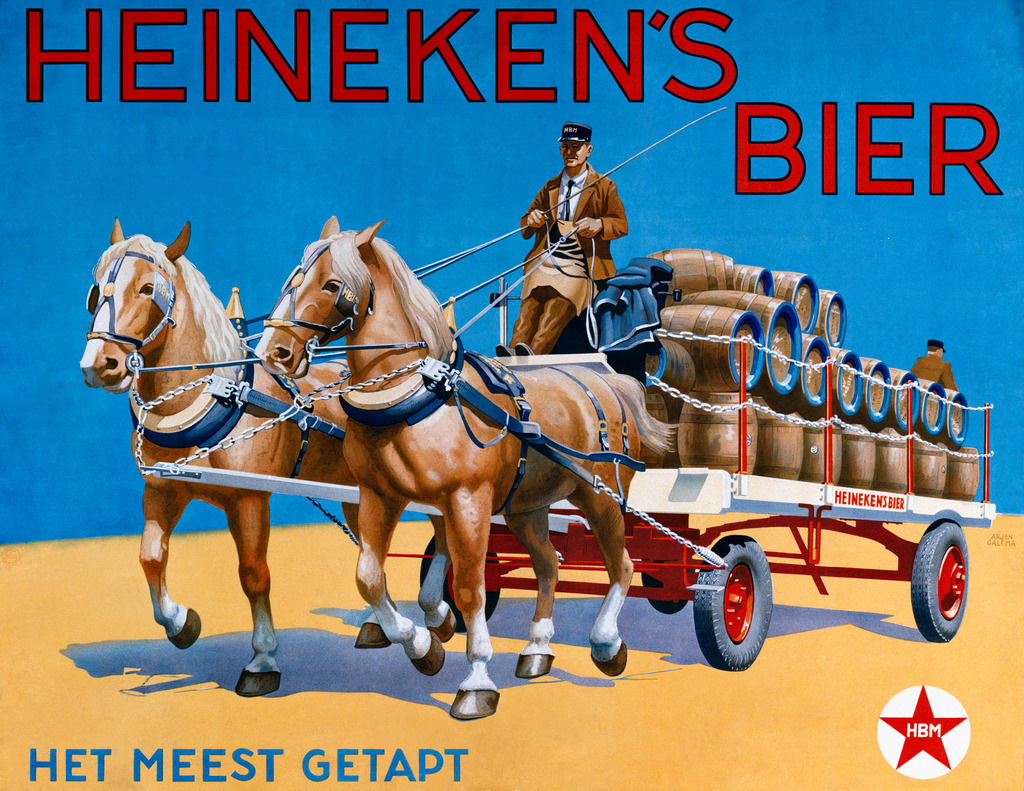Horses of Heineken
Horses have been inextricably linked to Heineken beer ever since Gerard Adriaan Heineken took over the De Hooiberg brewery in 1864. The wooden beer barrels were delivered to cafes in Amsterdam, and later Rotterdam, on rattling carts pulled by sturdy dray horses.
Ice, which Heineken sold as a by-product of its cooling machines, was also distributed by horse and cart. The appearance of the first Heineken truck in 1900, didn't end the familiar sight of horse-drawn carts in the city. Even after beer transportation became fully motorised and the wooden barrels were replaced by steel , these noble animals continued to bring their own touch of nostalgia to the streets of Amsterdam and are welcome guests at equestrian and promotional events.
A special booklet
This booklet, Lijst der Paarden (List of Horses), was used by Heineken Rotterdam to keep track of the horses owned by the brewery. This book covers more than half a century, from 1890 to the end of World War II. That keeping horses is a serious and intricate business is evident from the many entries, which include lists of the horses that were bought and sold, along with notes on each individual animal.
A remarkable anecdote circulated at Heineken about the Rotterdam brewery's dray horses and their drivers before World War II. Every day, they drove their regular routes through the city with carts loaded with barrels to supply the Heineken pubs. Once a delivery was unloaded, landlords often offered the drivers a beer. Given their long working days, this regularly led to drowsy drivers. When the horses got fed up with waiting, so the story goes, they walked back on their own to their stables on Crooswijksesingel. This would be inconceivable today, of course.
A close shave
The booklet also contains a loose sheet bearing a harness room inventory from 1944. During World War II, the directors at Heineken Rotterdam narrowly managed to retain the horses for transporting beer. The German occupying forces requisitioned all means of transport in the Netherlands and riding animals were in high demand. Soon after the Dutch capitulated to the Germans in 1940, it was agreed that Heineken would be allowed to continue operating, provided the brewery produced beer for the German soldiers. And because the management argued that the horses were indispensable to the brewery's operation, the issue was dropped.


